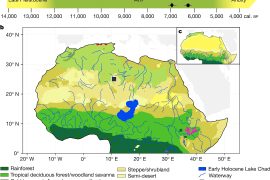
AI is the next frontier in cancer treatment
In the ongoing battle against cancer, a new AI approach is being explored that holds the potential to revolutionize the future of personalized cancer treatments.
The technology, which is an amalgamation of artificial intelligence, molecular dynamics simulations, and network analysis, aims to predict the binding sites on cancer-related proteins. This will pave the way for a faster development of treatments tailored for individual cancer patients.
The study was led by Dr. Rafael Bernardi, an associate professor of biophysics in the Department of Physics at Auburn University. As part of a collaborative effort with the University of Basel and ETH Zurich, the team is breaking barriers on how we understand and fight cancer.
“Our research underscores the potential of employing dynamic network analysis to enhance AI-based structure predictions for more accurate identification of protein-protein interaction interfaces,” noted the study authors.
AI and biophysics in cancer therapy
The team’s primary focus was understanding the interaction between therapeutic proteins and PD-L1, a protein that cancer cells use to hide from the immune system.
This insight could dramatically improve immunotherapies, making treatments like pembrolizumab (Keytruda) more effective.
“Utilizing computational tools to engineer proteins represents the next frontier in cancer therapeutics,” explained Dr. Bernardi. “Our integrated approach combining AI, molecular dynamics, and network analysis holds immense potential for developing personalized therapies for cancer patients.”
Protein manipulated by cancer cells
The most significant obstacle in this field of study is predicting the precise point where a drug can bind to its target protein. In this instance, the researchers concentrated on PD-L1, a checkpoint protein that cancer cells cleverly manipulate to suppress our immune defenses.
Modern drugs that block PD-L1 empower our immune system to attack these tumors, but knowing where precisely to target PD-L1 has remained elusive until now.
Merging computation and experimentation
Dr. Bernardi and his team have innovatively combined AlphaFold2-based AI tools with molecular dynamics simulations and dynamic network analysis to predict and verify crucial binding regions in the PD-L1 protein.
“This work showcases the importance of collaboration between the computational team at Auburn University and the experimental validation efforts of our colleagues at the University of Basel and ETH Zurich, Switzerland, driving forward breakthroughs in the field,” said study lead author Dr. Diego Gomes.
To confirm the accuracy of their predictions, the team relied on cutting-edge experimental techniques, such as cross-linking mass spectrometry and next-generation sequencing.
These experiments have shown how powerful it can be to combine computational models with laboratory validation to unravel the complexity of protein-protein interactions.
Expanding the future of targeted treatments
The impact of this study is expected to extend well beyond PD-L1. The methods developed can be applied to numerous other proteins, potentially leading to the discovery of new drug targets for various diseases, including different types of cancer and autoimmune conditions.
Moreover, it opens the door for more cost-effective and swift development of therapeutics, an area where traditional experimental methods have often been slow and costly.
“This research stresses the potential of computational tools like NAMD and VMD, combined with cutting-edge hardware such as NVIDIA DGX systems, to advance cancer therapeutics. Our findings mark a significant step toward developing new, targeted treatments for cancer,” noted Dr. Gomes.
Advancing AI-driven cancer treatment
While this research offers significant promise, the road to clinical application is not without its challenges.
Translating computational findings into effective cancer therapies requires extensive testing and collaboration between researchers, clinicians, and pharmaceutical companies.
However, the team remains optimistic about the potential of these AI-driven approaches to fast-track drug development.
The next phase of this research will focus on refining the accuracy of these predictions and expanding the scope of study to include other cancers and autoimmune diseases.
As personalized medicine continues to evolve, AI-powered approaches like this one could soon become a standard tool in the fight against cancer, offering patients faster, more effective treatments tailored to their specific genetic makeup.
The study is published in the journal Journal of the American Chemical Society.
—–
Like what you read? Subscribe to our newsletter for engaging articles, exclusive content, and the latest updates.
Check us out on EarthSnap, a free app brought to you by Eric Ralls and Earth.com.
—–













